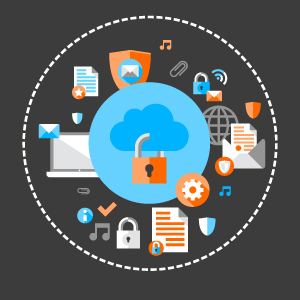For Lawyers, Cybersecurity and Information Assurance are Essential


For Lawyers, Cybersecurity and Information Assurance are Essential
Of all the conversations taking place in law firms over the past decade, one of the more serious discussions have focused primarily on cybersecurity and information assurance with regards to maintaining privacy for a firm and its clients.
It’s a topic many law professionals are aware of, but not necessarily educated in, yet it could ultimately mean the difference between protecting your firm’s informational assets and being open to hacking attempts, data theft and a wide range of other cyberattacks.
Today we examine cybersecurity and information assurance from a unique perspective, and shed some light on why it should be part of your firm’s legal technology. This way, you as a lawyer can be made more aware of how your firm can stay secure, and make substantial improvements in efficiency across your organization.
What is Cybersecurity?
According to CNN Money, hackers release roughly 1 million new malware threats every single day – a staggering number when you consider how many law firms rely on the Internet for research, information sharing and communication.
The aim of cybersecurity is to solve this problem. Nevertheless, having this in place means hiring a team of IT professionals who constantly update your technology and stay abreast of new developments in the industry. If this doesn’t take place, then your firm’s information has a very good chance of slipping through the cracks, and into the wrong hands.
To put it into basic legal terms, cybersecurity can be compared to having a defense lawyer for your firm’s information. When cyberattacks occur, your level of cybersecurity is similar to the strength of the attorney arguing your case. If your lawyer is unprepared or not fully engaged, your chances of losing the case – or in other words, losing information – has a much higher potential.
If your lawyer is fully prepared, however, and at the top of their game in terms of schooling, practical expertise and the latest legal developments related to your case, your chances of winning – or protecting your data – is certain. And this is why so many law practices are looking for endpoint antivirus and malware protection to not only observe Rule 1.6 of the ABA, but to also maintain their credibility as individual attorneys and firms.
What is Information Assurance?
Information assurance goes hand-in-hand with cybersecurity in that it also protects information for law firms but in a much broader sense. Basically, where cybersecurity uses technology and processes to guard against damage or unauthorized access, information assurance makes certain your information is stored properly, backed up, always available and strictly confidential.
If cybersecurity is your defense lawyer, then information assurance is the legal system itself. It’s not only the place where cybersecurity operates, it is where the entire scope of data protection originates.
According to the National Institute of Standards and Technology (NIST), information assurance is defined as the following:
Measures that protect and defend information and information systems by ensuring their availability, integrity, authentication, confidentiality, and non-repudiation. These measures include providing for restoration of information systems by incorporating protection, detection, and reaction capabilities.
For many people, this is where questions about the validity and security of cloud-based computing often come up. With that in mind, here’s a great example of how a private cloud is more beneficial for you than having in-house servers and protection.
When you buy a new smartphone, you get access to software updates coming from the manufacturer from that point on. Nevertheless, the capabilities of the phone itself never change outside of having new added features that, over time, begin to tax its non-upgradable components. This puts you in the position of needing a new phone in order to get the speed, memory and security improvements you desire.
Cloud-based solutions, such as Abacus Law’s Desktop-as-a-Service (DaaS) solution, are analogous with owning a single phone for your entire lifetime. It’s a phone whose hardware and software is always up-to-date, and offers you the latest in technology and security. There are no upgrades to purchase and no slowdowns in operation – your smartphone works just as well on day 365 as it did on day one. And many times even better.
Now that you know more a little more about cybersecurity and information assurance, find out the other ways you benefit from having a comprehensive approach to protection and organization in your law firm by scheduling a demo for Abacus Private Cloud today.